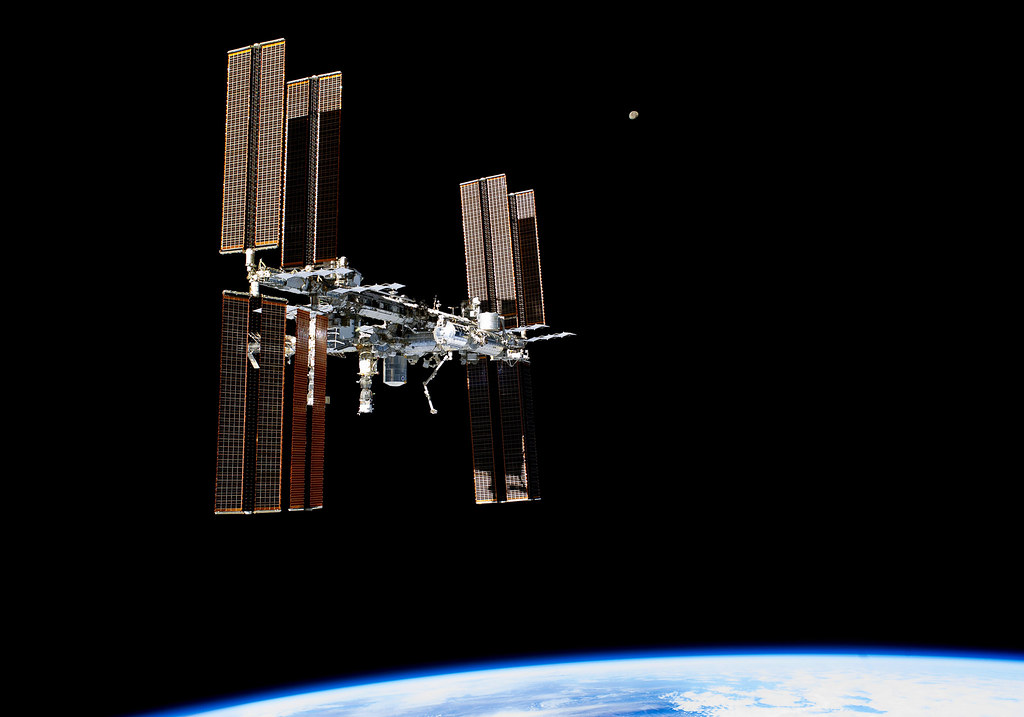Science News Roundup: Could key ingredients for life have arrived from space? Scientists say yes; The latest astronaut crew of 4 welcomed aboard International Space Station and more
Rendezvous of the Crew Dragon capsule with the station less than 16 hours after launch from NASA's Kennedy Space Center in Cape Canaveral, Florida, marked one of the fastest flights by Elon Musk's SpaceX to the ISS from liftoff to docking, NASA webcast commentators said. All-private astronaut team returns safely from landmark space station visit The first all-private astronaut team ever flown aboard the International Space Station (ISS) safely splashed down in the Atlantic off Florida's coast on Monday, concluding a two-week science mission hailed as a landmark in commercialized human spaceflight.

Following is a summary of current science news briefs.
Could key ingredients for life have arrived from space? Scientists say yes
A fresh examination of meteorites that landed in the United States, Canada, and Australia is bolstering the notion that such objects may have been delivered to Earth early in its history with chemical ingredients vital for the advent of life. Scientists previously had detected on these meteorites three of the five chemical components needed to form DNA, the molecule that carries genetic instructions in living organisms, and RNA, the molecule crucial for controlling the actions of genes. Researchers said on Tuesday they have now identified the final two after fine-tuning the way they analyzed the meteorites.
The latest astronaut crew of 4 welcomed aboard International Space Station
Four astronauts, three from NASA and one from the European Space Agency, arrived at the International Space Station (ISS) on Wednesday and docked their SpaceX capsule, just two days after the last crew to depart the orbiting outpost returned to Earth. Rendezvous of the Crew Dragon capsule with the station less than 16 hours after launch from NASA's Kennedy Space Center in Cape Canaveral, Florida, marked one of the fastest flights by Elon Musk's SpaceX to the ISS from liftoff to docking, NASA webcast commentators said.
Sanders seeks to cut $10 billion funding proposal for new NASA lunar lander
U.S. Senator Bernie Sanders asked lawmakers to delete language from a bill that would fund the development of a new lunar lander for NASA, a move seen as part of the senator's effort to nix federal funds that could go to companies owned by billionaire Jeff Bezos. The provision is part of a broad bill that would provide $52 billion in semiconductor manufacturing subsidies and authorize additional funds to boost U.S. competitiveness and scientific research.
A fifth of world's reptile species are deemed threatened with extinction
About a fifth of reptile species - from the Galapagos tortoises to the Komodo dragon of the Indonesian islands, from West Africa's rhinoceros viper to India's gharial - are threatened with extinction, researchers said on Wednesday in the first comprehensive global status assessment for reptiles. The study examined 10,196 reptile species including turtles, crocodilians, lizards, snakes and the tuatara, the only surviving member of a lineage dating back more than 200 million years. They found that 21% of species are critically endangered, endangered or vulnerable to extinction as defined by the International Union for Conservation of Nature (IUCN), the global authority on the status of species. They also identified 31 species that already have gone extinct.
Inmarsat chief warns of a potentially hazardous satellite boom
British satellite company Inmarsat warned on Tuesday of dangerous levels of space debris from satellite constellations planned by Elon Musk's Starlink, Amazon, Chinese operators, and others. Inmarsat Chief Executive Rajeev Suri welcomed innovation in satellite constellations in low orbit but added that there should be better industry and regulatory coordination as they are launched.
All-private astronaut team returns safely from landmark space station visit
The first all-private astronaut team ever flown aboard the International Space Station (ISS) safely splashed down in the Atlantic off Florida's coast on Monday, concluding a two-week science mission hailed as a landmark in commercialized human spaceflight. The SpaceX crew capsule carrying the four-man team, led by a retired NASA astronaut who is now vice president of the Texas company behind the mission, Axiom Space, parachuted into the sea after a 16-hour descent from orbit.
(With inputs from agencies.)
ALSO READ
Transatlantic Diplomacy: Key Talks in Paris and Washington
Trans-Atlantic Tensions: EU and US Trade Negotiations
United States and Philippines Strengthen Military Ties Amid Regional Tensions
Meloni's Diplomatic Dance: Bridging Transatlantic Trade Tensions
Cross-Atlantic Diplomacy: Meloni's Strategic Role in U.S.-Europe Trade Talks










